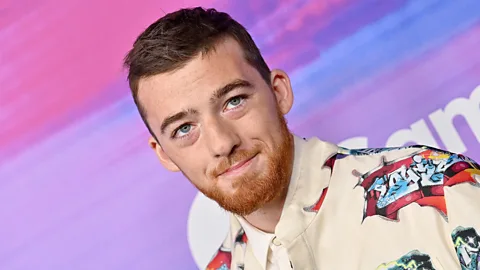Must the show go on? How TV series handle the death of a star
 Getty Images
Getty ImagesAngus Cloud's posthumous return to the screen brings questions about the "right" way to carry a story forward when a key cast member has ed away.
Television is no stranger to the sort of shocking deaths that demonstrate the medium's powers of imagination and surprise: the death in a private jet that set Succession fans (and actors) aflame, for example, or Game of Thrones' Ned Stark losing his head in the town square. But the real, unexpected death of an actor is a sobering reminder of the fragile reality behind even the most transportive fictions.
Actors dying during the production of a television series isn't an uncommon occurrence, yet it has recently befallen several of the most talked about shows on TV.
Fans have been wondering how Max's Euphoria will handle the loss of Angus Cloud, who died last July of an accidental overdose at the age of 25. The network's approach will hopefully be revealed in 2025 when the drama's third season is set to debut, despite news that production has again been put on hold, potentially indefinitely. Max declined to comment on the direction of the story, but the last viewers saw of Cloud's character Fez, he had just been shot by police. In the meantime, one of Cloud's final onscreen appearances, in the horror film Abigail, which wrapped filming before his death, arrives in US theaters on 19 April of this year.
Meanwhile, Cloud's Abigail co-star Giancarlo Esposito recently ed Shonda Rhimes' White House-set The Residence, in a role that was originally to be played by the late Andre Braugher, who died of lung cancer last December. Lance Reddick, who appears as Zeus in the first season of Percy Jackson and the Olympians, died from heart disease last March, leaving Disney to decide how to approach the pivotal character in season 2. And Channel 4's royal family satire The Windsors is faced with how to move forward after Dame Haydyn Gwynne, who played Queen Camilla, died from cancer in October.
How, or whether, a series chooses to forge ahead following the death of an actor involves a complex and sensitive array of considerations, including the nature of the series, the character's place in the story, and the circumstances of the actor's death. Perhaps above all is a desire among television creators to respect the legacy of the late actor, and the devotion that person inspired from colleagues, loved ones and fans.
"You're dealing with the tragic loss of somebody you loved deeply," says Dante Di Loreto, an executive producer of the teen-driven musical dramedy Glee, which aired on Fox from 2009 to 2015 and is currently streaming on Hulu. Cory Monteith, who played Finn on the popular series, died from an overdose in 2013. "You're also managing the feelings and needs of the hundreds of people who are dependent upon and executing the show," Di Loreto says.
Moving on without a late actor presents a variety of creative challenges, depending on the emotional tenor of the show and its relationship to audiences. How an actor's death is handled within the world of a series "depends on the pace and the framing of the genre," says Tim Teeman, senior culture editor and writer at The Daily Beast. "It might be easier for a crime or action show to go fairly big and dramatic with a character's death, but if you're working on a gentler canvas, you might choose a gentler outcome," Teeman says.
Riverdale, the teen soap based on the Archie Comics characters, for example, is rife with twists and turns; following the death of Luke Perry from a stroke in 2019, his character Fred Andrews was killed in an offscreen hit-and-run accident. A romantic comedy like And Just Like That…, on the other hand, addressed the sudden death of Willie Garson during production on season 1 by writing his character, Carrie's best friend Stanford, off the series and into a Tokyo monastery – a quizzical twist, but hardly out of step with the oddness of the Sex and the City reboot.
In a social media tribute to Garson, Sarah Jessica Parker referred to their friendship in both deeply personal and as "a shared professional family," indicating how close-knit behind-the-scenes connections can be. For creative decision-makers and fans alike, emotional stakes run high when an actor dies but the show carries on without them.
Tending to a television family
"It's an immense business operation," Di Loreto says of managing a television production. "But because it's an art form, and you're dealing with artists, there's a great emotional commitment to what you're doing." On top of processing his personal shock over Monteith's death, which happened while Di Loreto was in production on the HBO film The Normal Heart, the producer was tasked with helping to shepherd the entire Glee team through a traumatic loss.
"The first thought was, how do we take care of the existing cast">window._taboola = window._taboola || []; _taboola.push({ mode: 'alternating-thumbnails-a', container: 'taboola-below-article', placement: 'Below Article', target_type: 'mix' });
